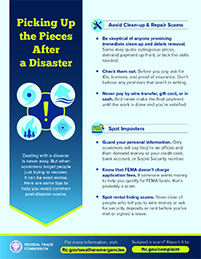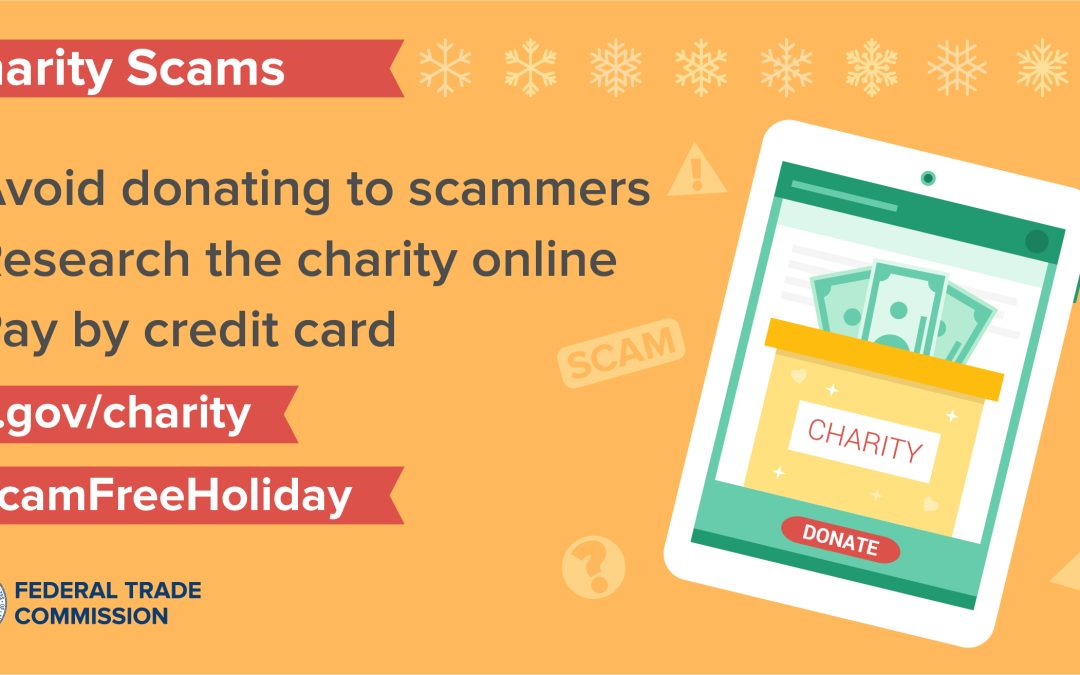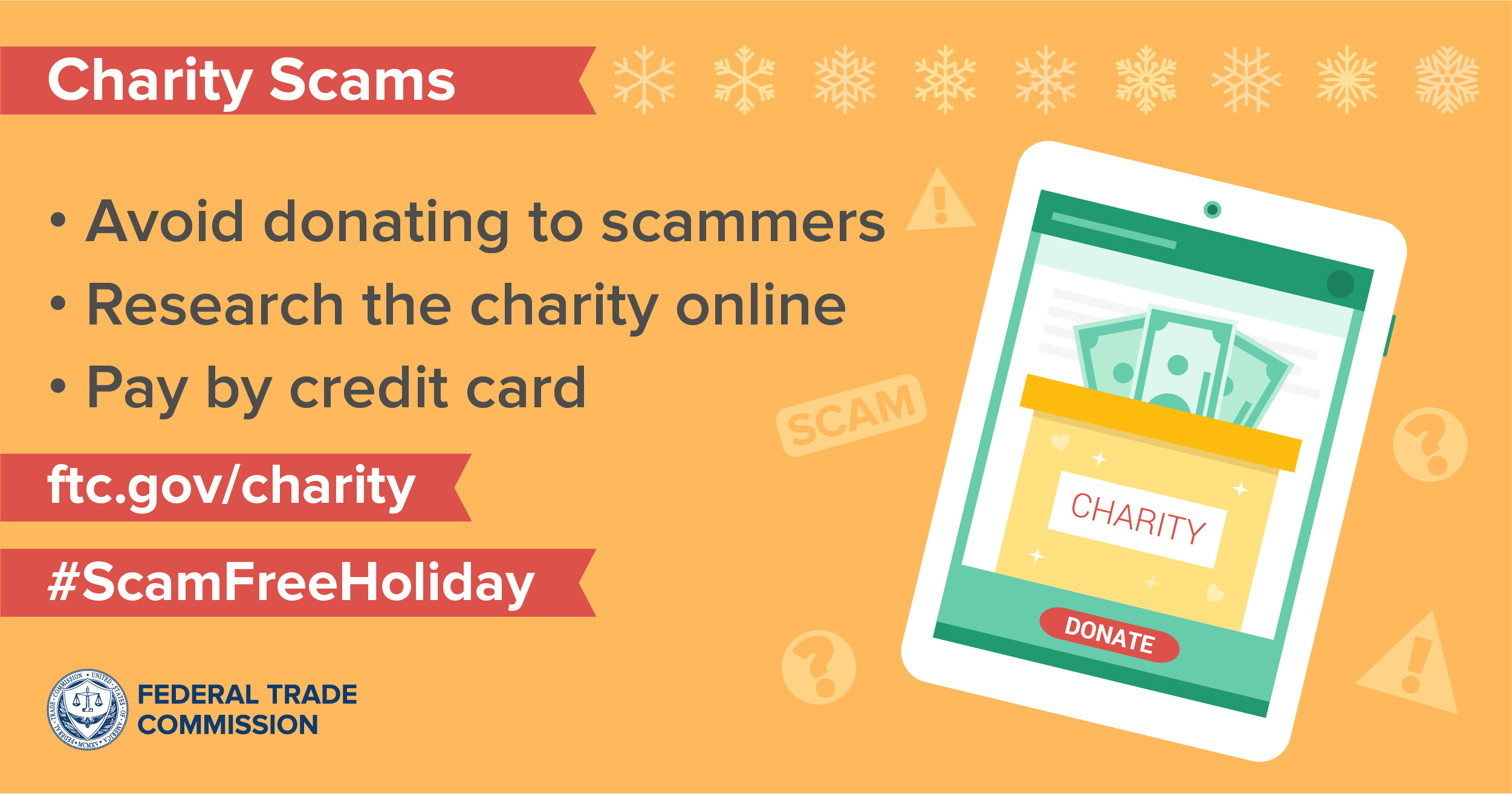Apple Releases Security Updates for Multiple Products
This article is contributed. See the original author and article here.
This article is contributed. See the original author and article here.

This article was originally posted by the FTC. See the original article here.
If you or someone you know has been affected by the devastating series of tornadoes that roared across Kentucky, Illinois, Tennessee, Arkansas, and Missouri, coping with the aftermath is never easy. But when scammers target people just trying to recover, it can be even worse. Here are ways to help you and your neighbors avoid common post-disaster scams.
Please share this 8.5 x 11 infographic, Picking Up the Pieces after a Disaster, and social media image in your community. 
Bookmark Dealing with Weather Emergencies. If a weather event or disaster affects you, come back for more tips on recovery and information about your rights. Like all our materials, the site is mobile-friendly, so you’ll have ready access to information when and where you need it.
Suspect a scam? Report it to the FTC at ReportFraud.ftc.gov. Want information on the latest frauds and scams we’re seeing? Sign up for our consumer alerts.
Note: This blog, originally posted on September 3, 2021, has been updated following the December 11-12 series of tornadoes.
Brought to you by Dr. Ware, Microsoft Office 365 Silver Partner, Charleston SC.

This article was originally posted by the FTC. See the original article here.
 The season of giving is here. If you celebrate Christmas, you might be about to fill some stockings. But, for many, holiday giving includes supporting charitable causes. Charities in need of support will be making year-end appeals by phone, mail, email, and social media. Scammers know that, too, and every year try to trick people into giving to them, not the real deal. So here are some steps to take to make sure the charity is real and your money will support the programs you care about.
The season of giving is here. If you celebrate Christmas, you might be about to fill some stockings. But, for many, holiday giving includes supporting charitable causes. Charities in need of support will be making year-end appeals by phone, mail, email, and social media. Scammers know that, too, and every year try to trick people into giving to them, not the real deal. So here are some steps to take to make sure the charity is real and your money will support the programs you care about.
Check out ftc.gov/charity for more, including on giving through online platforms. And take a moment to check out, and share, this charity fraud video. Happy giving!
Brought to you by Dr. Ware, Microsoft Office 365 Silver Partner, Charleston SC.
This article is contributed. See the original author and article here.
CISA has added thirteen new vulnerabilities to its Known Exploited Vulnerabilities Catalog, based on evidence that threat actors are actively exploiting the vulnerabilities listed in the table below. These types of vulnerabilities are a frequent attack vector for malicious cyber actors of all types and pose significant risk to the federal enterprise.
|
CVE Number |
CVE Title |
Remediation Due Date |
|
Apache Log4j2 Remote Code Execution Vulnerability |
12/24/2021 |
|
|
CVE-2021-44515 |
Zoho Corp. Desktop Central Authentication Bypass Vulnerability |
12/24/2021 |
|
CVE-2021-44168 |
Fortinet FortiOS Arbitrary File Download Vulnerability |
12/24/2021 |
|
Realtek Jungle SDK Remote Code Execution Vulnerability |
12/24/2021 |
|
|
Pi-Hole AdminLTE Remote Code Execution Vulnerability |
6/10/2022 |
|
|
Fuel CMS SQL Injection Vulnerability |
6/10/2022 |
|
|
Sonatype Nexus Repository Manager Incorrect Access Control Vulnerability |
6/10/2022 |
|
|
Linux Kernel Improper Privilege Management Vulnerability |
6/10/2022 |
|
|
MongoDB mongo-express Remote Code Execution Vulnerability |
6/10/2022 |
|
|
Apache Solr DataImportHandler Code Injection Vulnerability |
6/10/2022 |
|
|
Embedthis GoAhead Remote Code Execution Vulnerability |
6/10/2022 |
|
|
Red Hat Jboss Application Server Remote Code Execution Vulnerability |
6/10/2022 |
|
|
Red Hat Linux JBoss Seam 2 Remote Code Execution Vulnerability |
6/10/2022 |
Binding Operational Directive (BOD) 22-01: Reducing the Significant Risk of Known Exploited Vulnerabilities established the Known Exploited Vulnerabilities Catalog as a living list of known CVEs that carry significant risk to the federal enterprise. BOD 22-01 requires FCEB agencies to remediate identified vulnerabilities by the due date to protect FCEB networks against active threats. See the BOD 22-01 Fact Sheet for more information.
Although BOD 22-01 only applies to FCEB agencies, CISA strongly urges all organizations to reduce their exposure to cyberattacks by prioritizing timely remediation of Catalog vulnerabilities as part of their vulnerability management practice. CISA will continue to add vulnerabilities to the Catalog that meet the meet the specified criteria.
This article is contributed. See the original author and article here.
The Apache Software Foundation has released a security advisory to address a remote code execution vulnerability (CVE-2021-44228) affecting Log4j versions 2.0-beta9 to 2.14.1. A remote attacker could exploit this vulnerability to take control of an affected system. Log4j is an open-source, Java-based logging utility widely used by enterprise applications and cloud services.
CISA encourages users and administrators to review the Apache Log4j 2.15.0 Announcement and upgrade to Log4j 2.15.0 or apply the recommended mitigations immediately.
Recent Comments